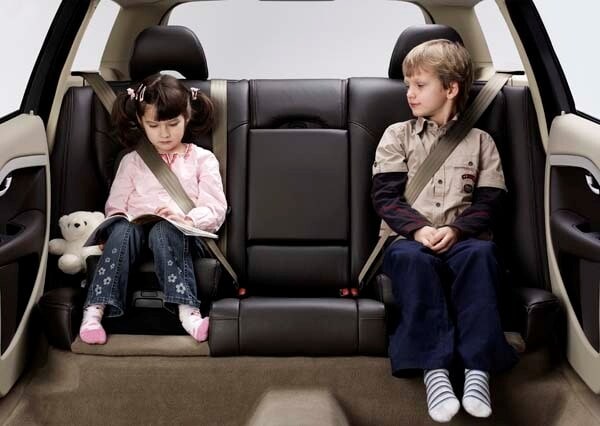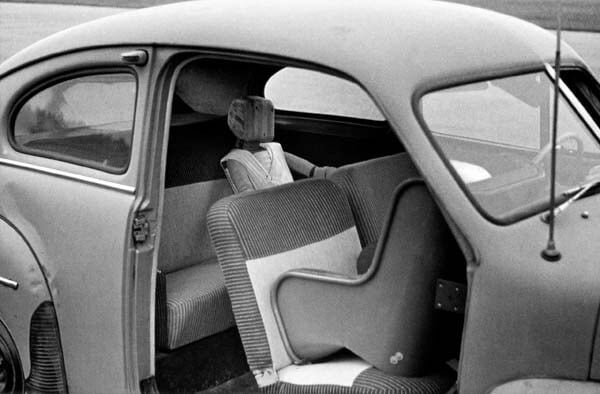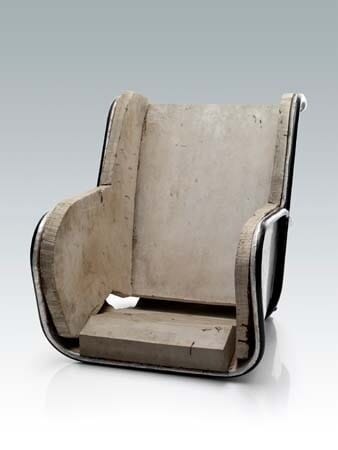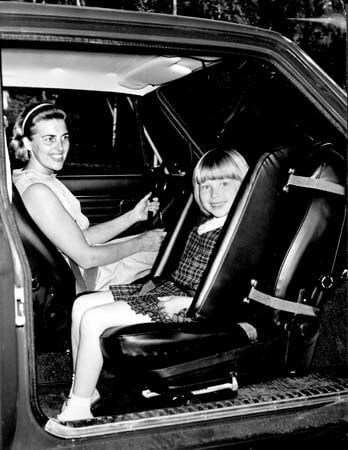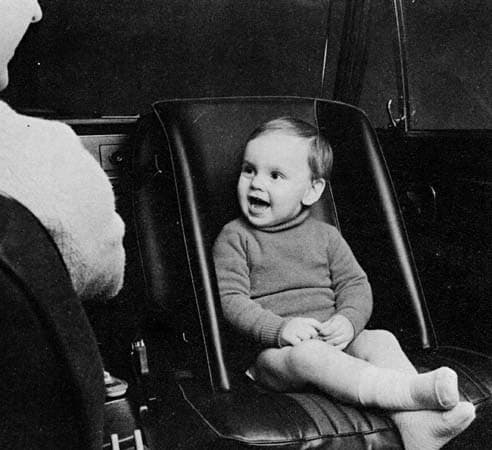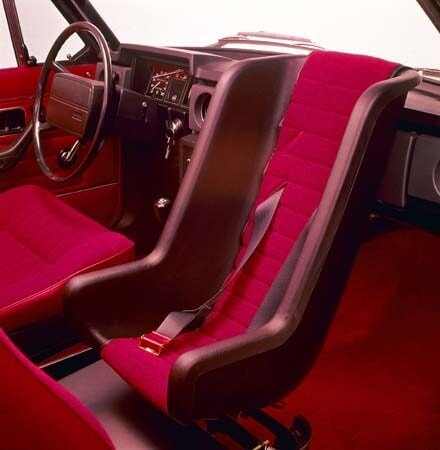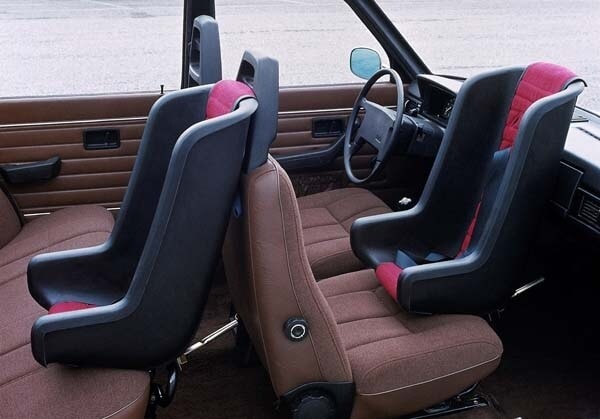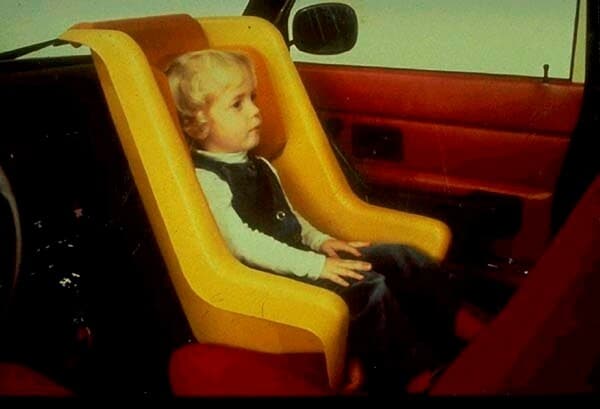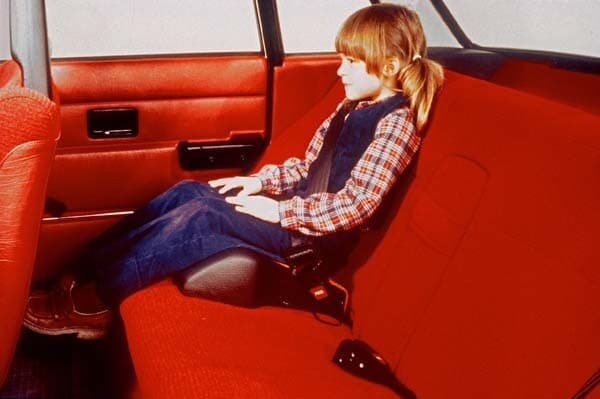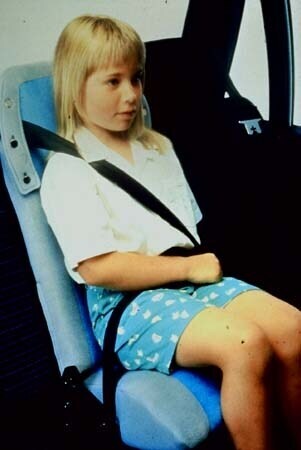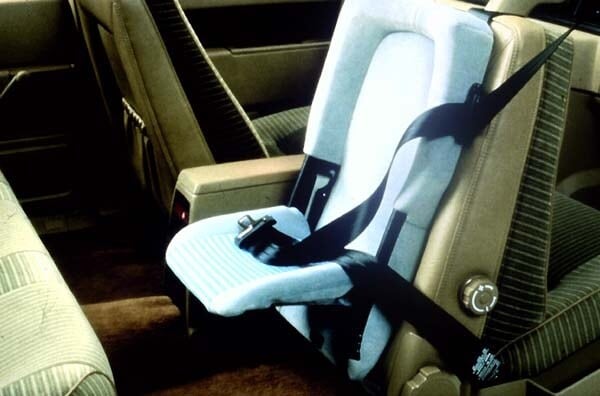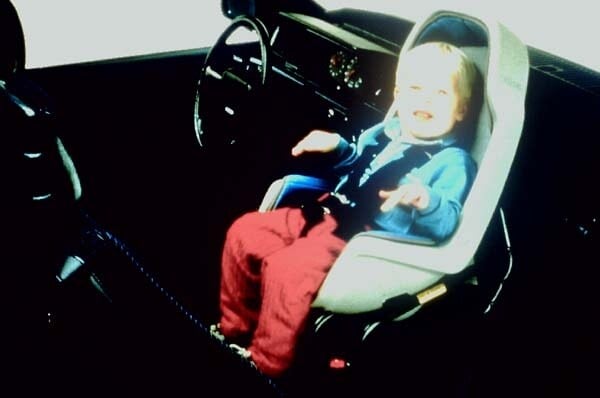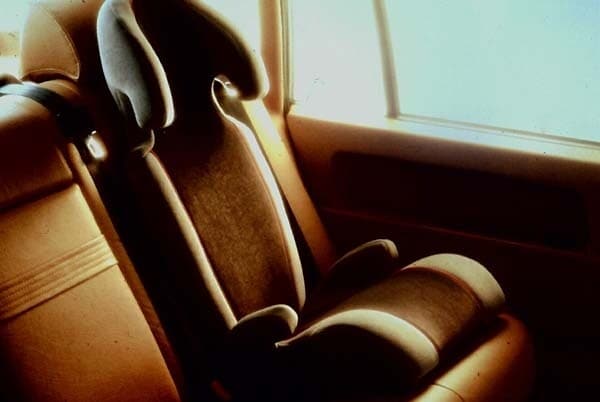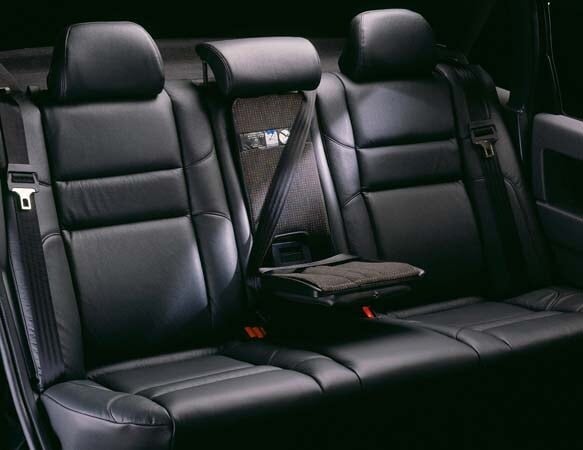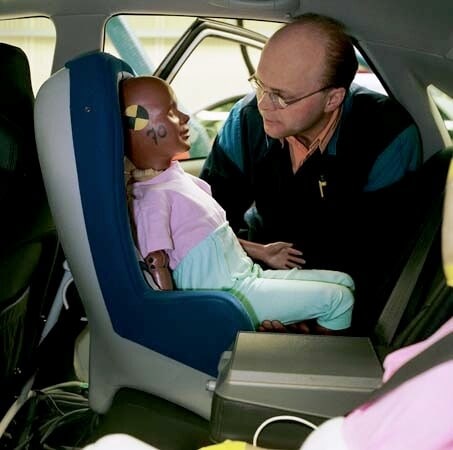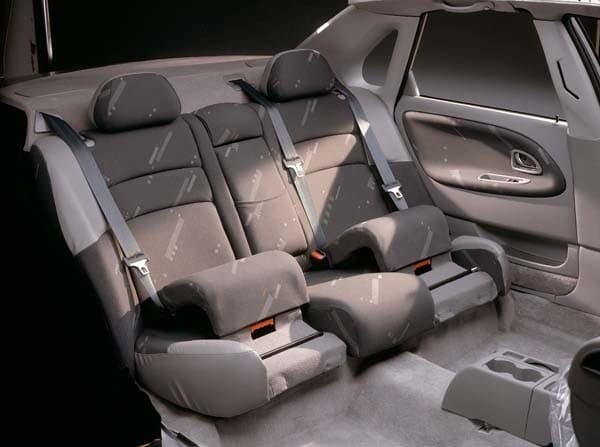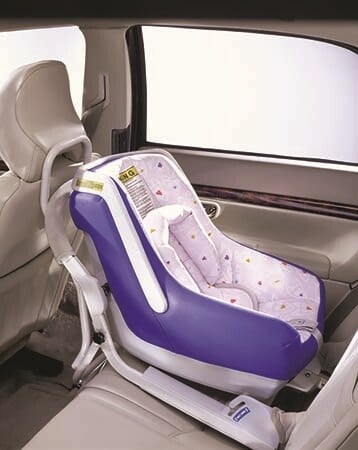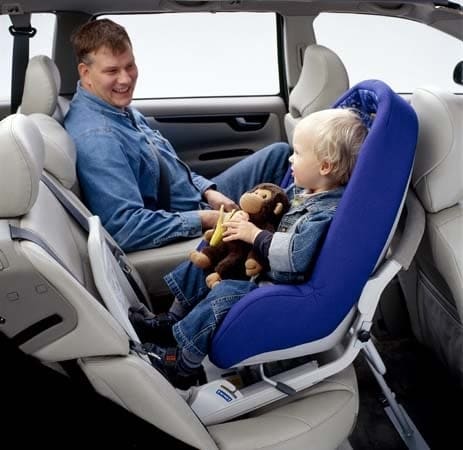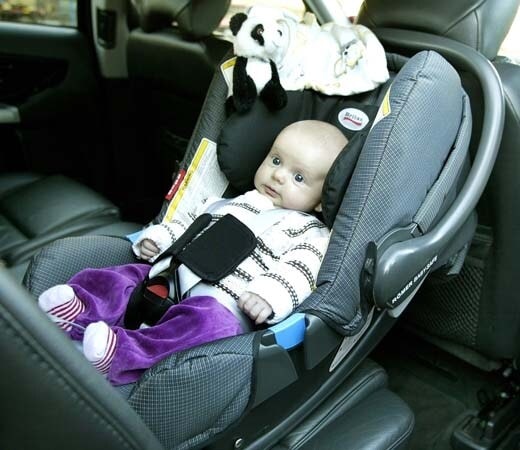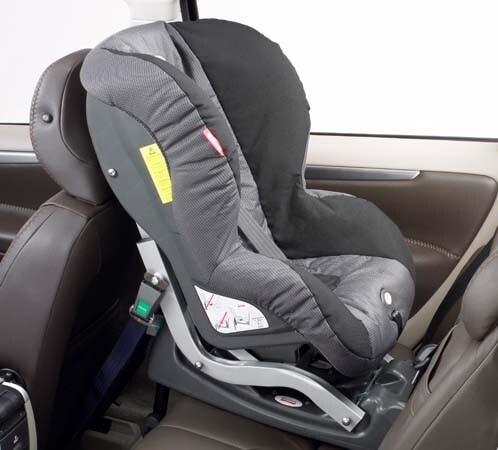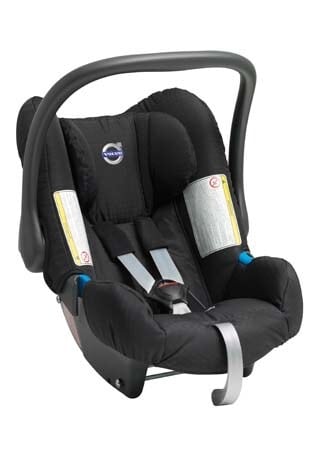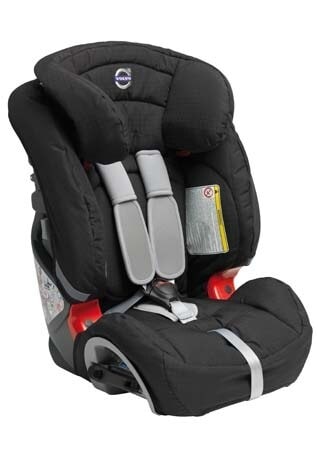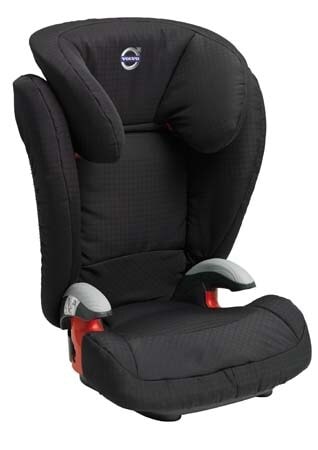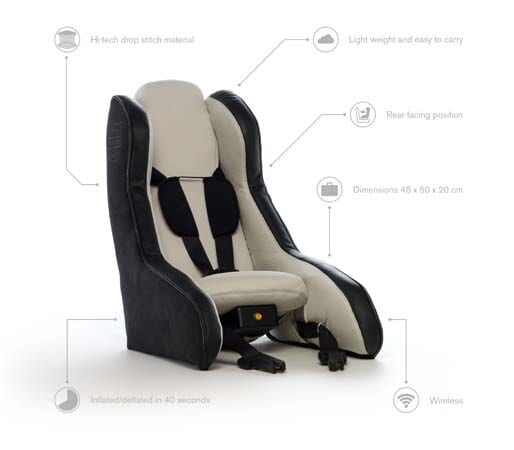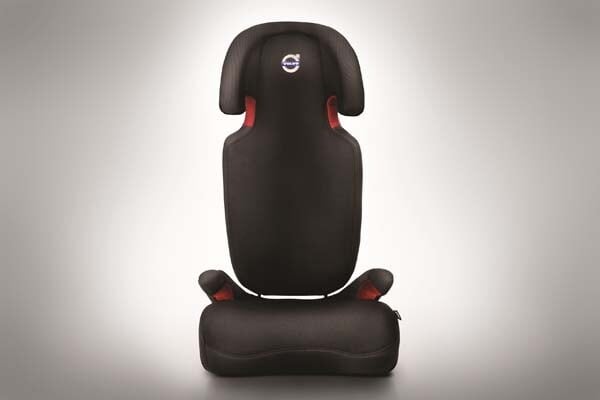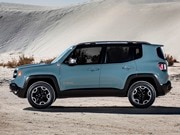One of the criteria in evaluating the 2015 Best Family Cars is the ease with which one can install and use a child safety seat. This seemingly ubiquitous piece of safety equipment wasn’t always a given when it came to transporting children. It’s not too distant a memory for baby boomers of sitting in rear facing seats in a station wagon’s third row or being squeezed in wherever they could fit in conventional sedans or coupes. There was even a time when a truck had jump seats bolted into the bed, and kids would often sit there during trips.
Fortunately, a lot has changed since then, and children riding in cars are safer than ever. Starting in the 1970s, states began to require use of child seats for children. And while not every state in the U.S. has the same exact child passenger restraint laws, all require a safety seat for babies as well as for young children, and 48 states require booster seats for children who are too big for child seats.
Also: Kelley Blue Book Best Buy Awards of 2015
LATCH and the evolving car seat
While station wagons have been essentially superseded by SUVs and crossovers as the family car of choice, auto manufacturers have to design their vehicles to be child-friendly and child-safe in all rows. That’s where features such as LATCH (Lower Anchors and Tethers for CHildren) come into play. When it comes to child safety, it isn’t just a matter of designing a smaller seat for a kid. Child seats are built to protect kids in a different way than adults are protected. For example, a child’s neck isn’t as strong as an adult’s, and needs more support.
Child safety has advanced thanks in no small part to Volvo‘s research and development of child and booster seats. In fact, the company has been working on child safety for over 50 years and the timeline above shows the progress Volvo has made. The company created its first prototype child seat in 1964 and has continued innovating in this area ever since. Their latest concept is that of an inflatable child seat concept, which would provide all the safety of a regular child seat, but it folds into a small backpack when not in use.
Popular at KBB.com
See the All-New Cars for 2015
10 Coolest Cars Under $18,000
Best Buys of 2015
